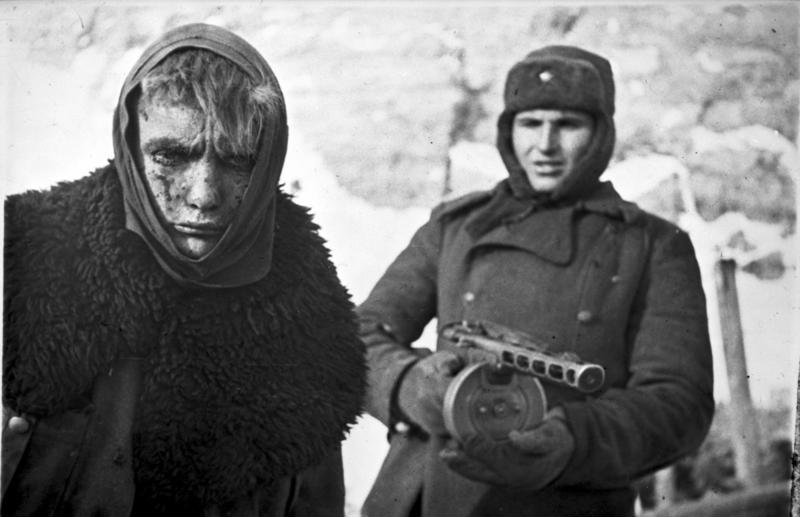It was at the battle of Stalingrad that Hitler met his match, and was dealt a decisive blow, from which he couldn’t recover. The battle was a turning point of the Second World War II, and the victory has been heralded as one of the most important in history and ultimately the one that led to the defeat of Nazi Germany.
The battle of Stalingrad began on the 23rd of August and lasted throughout the winter of 1942/43, where the Soviet Union launched a series of counteroffensive strikes that led to the removal of German forces from Moscow. The German army already had its resources stretched and couldn’t launch an attack, even though they had managed to capture important industrial resources, cities and lands in the Soviet Union.
The resolve of the Soviet Union couldn’t be broken, and the Army General Staff of the Führer was actively looking for a solution that would enable Germany to maintain their stranglehold and destroy all of the remaining Soviet armies. The only obstacle standing in the way was the Caucasus oil, which held the key to knocking the Soviet Union out of World War II and hastening victory for Germany in the war.
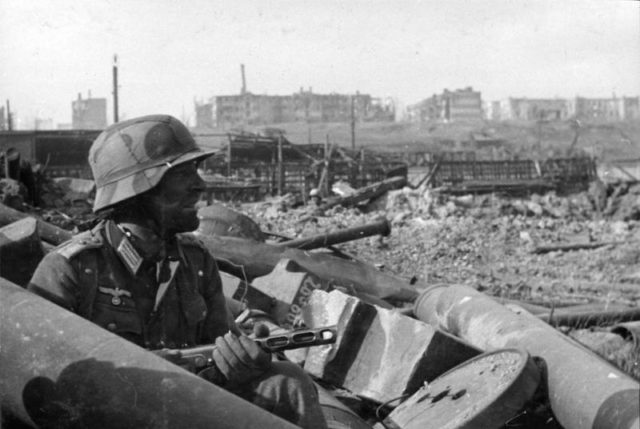
The Opening Moves
Stalin believed that the Germans would launch another attack towards Moscow, but Field Marshal Fedor von Bock attacked the south, and not on the Soviet Capital. This caught Stalin by complete surprise, and field Marshal von Bock’s Army Groups were divided into A and B Army. A was ordered to head south and gain strategic advantage from the Caucasus Mountains while Army B was ordered to protect the flanks from the north by capturing Stalingrad, the regional capital.
The inferior equipment and training of the Soviet forces were telling, as they were defeated with the same Blitzkrieg tactics that they had experienced the year before. The Germans targeted Soviet command posts and attacked with speed and precision, which gave them a massive advantage. The Soviet Union was on the verge of defeat and was short on modern armor, artillery, and air support.
It seemed inevitable that the Germans would prevail in the war, but this was where Hitler made a massive mistake in taking his eye off the ball, which was the strategic oil resources. He wanted to destroy Stalingrad, the city named after his personal adversary Stalin, and it allowed the Soviet Union to go on the defensive and play the waiting game.
The Battle of the Commanders
The Battle of Stalingrad highlighted the main differences between Soviet and German war machines, and the tactical nous of the commanders leading the armies. The Germans had Friedrich Paulus, who was 51 years old, and led the German 6th Army while the Soviet Union had Vasily Chuikov, who was 42 years old and led the Soviet 62nd Army. Both of them were different in nature and personality, and there was a massive difference in their ability and war experience as well.
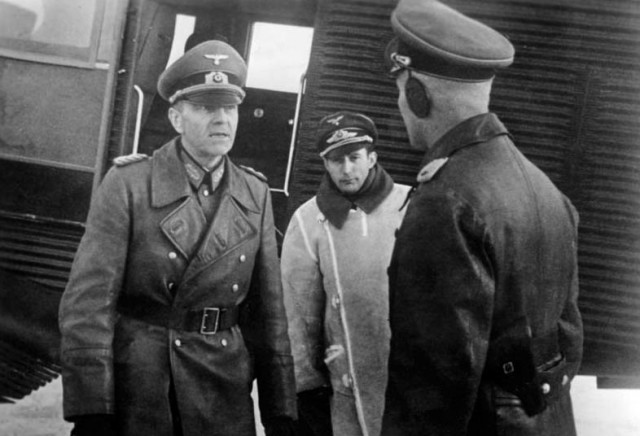
Paulus was an extraordinary staff officer, who had come from modest origins, but with his talent, he managed to rise up the ranks quickly to become General der Panzertruppen as well as Chief Staff Officer of the 6th Army. He didn’t like paperwork, and always prepared to be on the frontlines of the battle. However, he was “allergic” to dirt, and would command from behind the line, and would bathe and change his uniforms every single day. He was very meticulous about everything, and had been nicknamed as “the ditherer”.
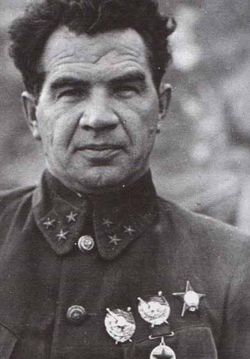
His opponent Chuikov was entirely the opposite and was a man who had a quick and explosive temper, who would use his walking stick to strike down anyone who displeased him. He was a born fighter but had come from a very humble background. He was the eighth child out of 12 and due to his determination and hard work, he managed to rise up the ranks to become regimental commander in the Russian Civil War when he was only 19 years old! He had also commanded the 4th Army when the Soviets had invaded Poland and hadn’t been part of the setbacks of 1941. He was recalled from China to command the 64th Army, and delay the Germans who were approaching Stalingrad.
The Battle Begins in Earnest
The Battle of Stalingrad is legendary because it set the standard for tactics in urban warfare. Paulus had been commanded by Hitler to seize control of the city, and this caused momentum to be lost as the army took their eye off the important oil wells. He reckoned that he couldn’t encircle Stalingrad, and decided to attack the city in smaller blocks.
Chuikov didn’t have the manpower to launch a counterattack and decided to defend doggedly and try to frustrate and destroy as many war machines as he could before they were overwhelmed by the Germans. Military tactics and history teach us that attackers should outnumber their opponents by 3 to 1 to win, and defenders who are determined will always inflict heavy casualties on the attackers. This proved to be the case.
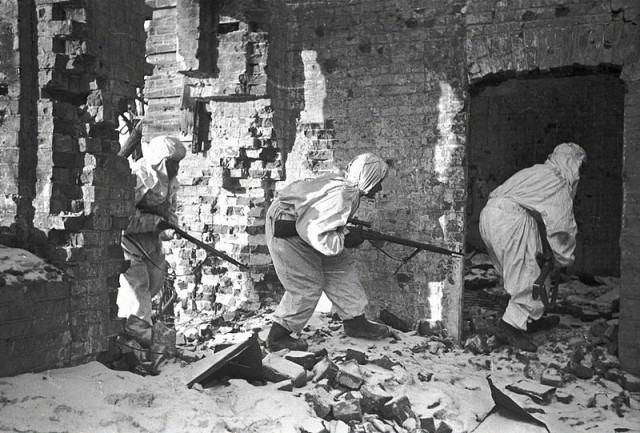
Paulus tried to capture the industrial areas towards the north of Stalingrad but failed miserably in his attempts. He lost six battalion commanders, and the infantry officers were taken out by shells and snipers. This was where Germany started to lose their foothold as a generation of well-trained and experienced leaders lost their lives in a matter of months. Undeterred by the losses he was suffering, Paulus continued on the offensive and by November, he managed to seize around 90% of Stalingrad and destroyed around 75% of Chuikov’s army.
However, Chuikov refused to give up and continued to defend doggedly, which inspired the remaining 25% of his army to defend and perish by his side. Chuikov knew that he would eventually lose if the Germans continued their attack, but he was prepared to outlast the battle. However, he had no idea that the STAVKA (Soviet High Command) were using Chuikov and his 62nd Army as a distraction to lure the Germans into a trap and surround them with larger forces.
Paulus was unaware of this and advanced with optimism, and Hitler had grown so confident that he had lost sight of his main objective, which was the OIL!! He had become embroiled in a personal struggle with Stalin and had decided to attack Stalingrad, which offered him no strategic advantage in the war. Hitler had set himself up for a failure of catastrophic proportions, in which defeat would mean the end of his Reich.
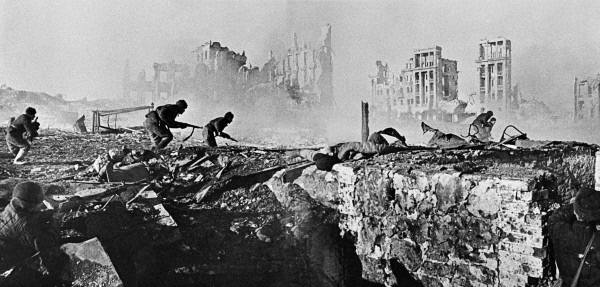
The Soviets Prevail
Operation Uranus was the Soviet counteroffensive, which was launched on 19th November, and six armies attacked the Germans from the North, targeting the weaker flank of Paulus’s army. In just a few hours, Paulus’s army had been sliced up and was in tatters. Three more armies attacked a day later, this time from the south, and rammed home the advantage, by crippling the German army from the rear. On the 23rd of November, two more Soviet armies attacked the Germans from the west and captured Paulus’s 6th Army.
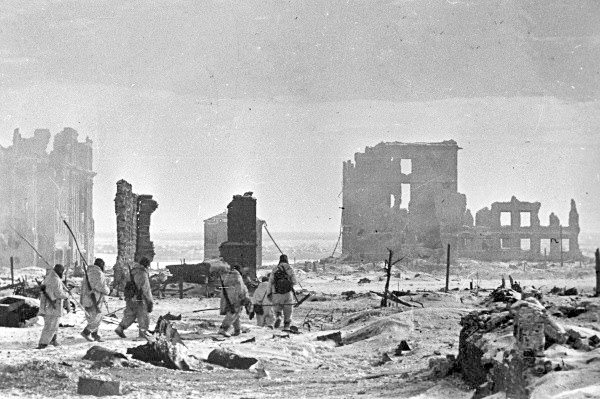
Paulus should have escaped at this stage, and returned to fight another day, but three personalities stopped that from happening. It led to the slow death of the 6th Army and shattered the aura of invincibility of the Germans. The first personality was Paulus’s own, as he didn’t make a quick decision to retreat when his army was being attacked from all sides. The second personality was Herman Göring who promised to send support and supplies to the 6th Army, which would include food, fuel, and ammunition. However, Göring was slow and couldn’t provide the resources on time. The 3rd personality was Hitler himself, who insisted that the 6th Army stand their ground and fight, instead of disgracing Hitler’s reputation.
The Germans realized that the 6th Army couldn’t be rescued, and the long battle continued until the 30th of January. Hitler was still encouraging Paulus to fight on, by bribing him with the promotion to General Field Marshall, but Paulus surrendered the next day in sub zero temperatures.
